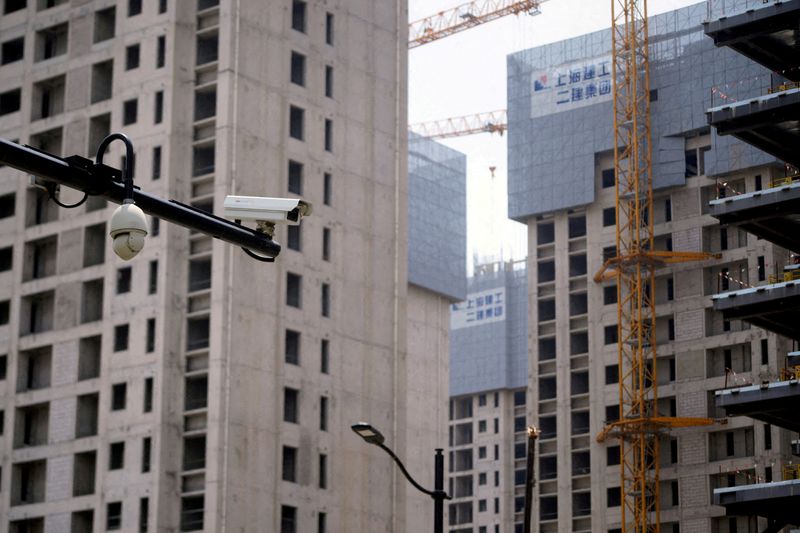BEIJING (Reuters) -China's new home prices fell at their fastest pace in over seven years in October, weighed down by COVID-19 curbs and industry-wide problems, reflecting a deepening contraction that prompted authorities to ramp up support for the sector in recent days.
New home prices slumped 1.6% year-on-year after a 1.5% fall in September, according to Reuters calculations based on National Bureau of Statistics (NBS) data on Wednesday. That was the biggest annual drop since August 2015 and the sixth month of contraction.
Regulators outlined 16 measures as part of a rescue package on Sunday aimed at boosting liquidity in the property sector, including loan repayment extensions. Markets cheered the measures, which sent property stocks soaring on Monday.
In an effort to relieve the liquidity crunch, China's banking and insurance regulator also said on Monday it would allow property developers to access some pre-sale funds.
But analysts worry the support measures could be ineffective because they are not targeting weakening demand and think the recovery is likely to be bumpy, as evidenced by downbeat property figures earlier this week.
"It should be noted that the current problem facing the real estate industry is no longer just for property, but more of economic income expectations," said Zhang Dawei, chief analyst at property agency Centaline.
"In the short term, the property market will remain in the doldrums in the fourth quarter."
China's property sector has struggled with defaults and stalled projects since authorities started to clamp down on excessive leverage in mid-2020, hitting market confidence and weighing on economic activity.
New home prices declined 0.3% month-on-month after easing 0.2% in September. Out of the 70 cities surveyed by NBS, 58 reported month-on-month price falls in October, up from 54 cities in September.
Data on Tuesday also pointed to further weakness in the cash-strapped sector, showing property investment fell at its fastest pace in 32 months in October and sales slumped for the 15th straight month.
The softer data comes even as more than 200 local governments have taken steps to revive the sector this year, including relaxing mortgage rates and refunding individual income tax for some homebuyers.
"Considering the protracted disruptions from dynamic zero-Covid policy, falling and unbalanced demographic demand, and policymakers' long-held stance that 'housing is for living in, not for speculation', we maintain our view that the property sector recovery should be gradual and bumpy," said Goldman Sachs (NYSE:GS) analysts in a note on Wednesday.
